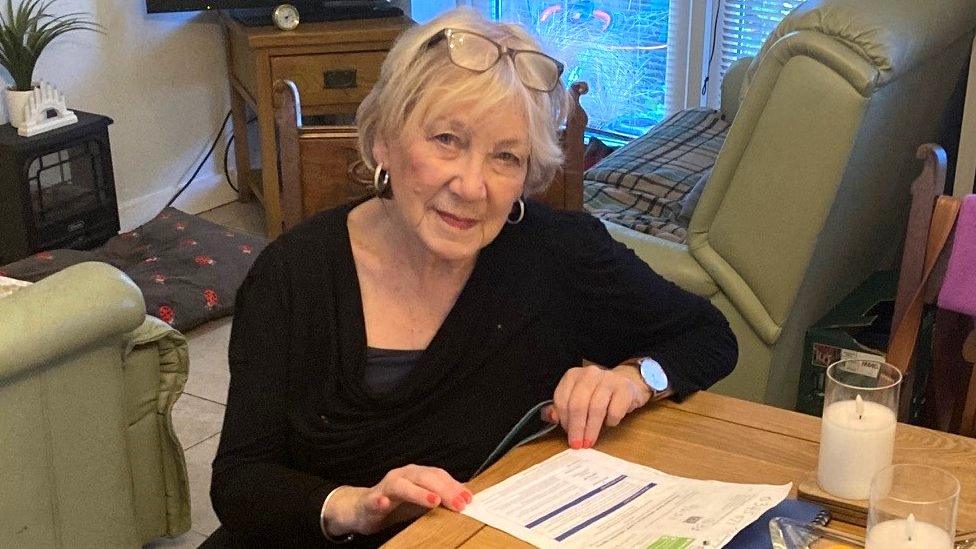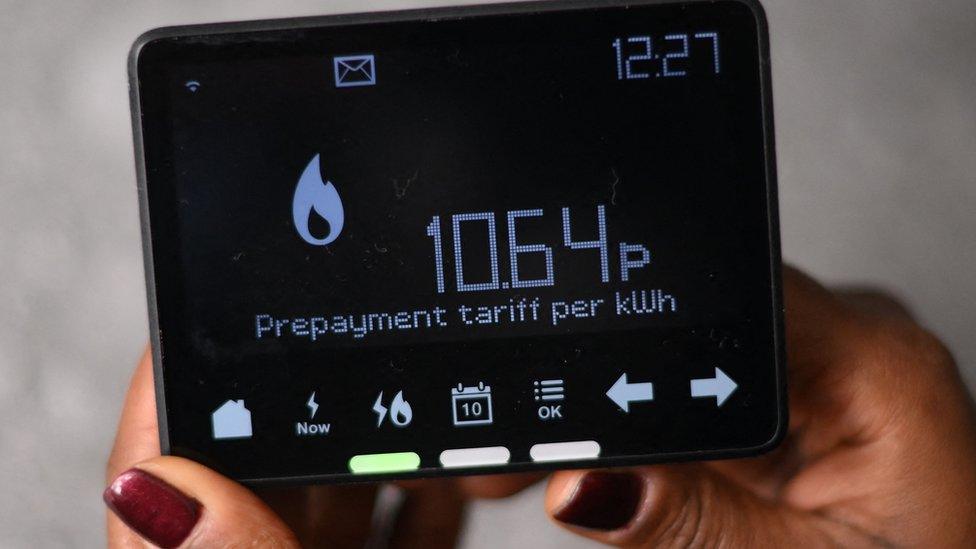Energy firms told to pay out over forced meter fittings
- Published
- comments

Energy firms should start compensating customers whose homes were wrongfully fitted with a prepayment meter, without waiting for the results of a major review, the regulator has said.
Ofgem chief executive Jonathan Brearley said companies must review their own meter installations immediately.
A six-week pause in forced prepayment fittings lasts until the end of March.
It came after debt agents for British Gas broke into vulnerable people's homes to force-fit meters.
Ofgem is now outlining the terms of its review into the rules, regulations and guidance surrounding prepayment meters.
The investigation - which will be complete by the end of March - will include submissions from the public. Information about how customers can offer details of their experiences will be announced soon.
'Fix it now'
Mr Brearley said any systematic problems would lead to fines for suppliers but he said the regulator had been clear to companies about the rules - and rejected the accusation that Ofgem had been too slow on the issue.
"If companies know they inappropriately installed a prepayment meter, then they should fix it now," he told BBC Radio 4's Today programme.
He said this meant switching the meter back to a regular one, if that was what the customer wanted, and giving compensation.
Ofgem cannot order companies to do so until its review is complete, but Mr Brearley said companies would know quickly when there were clear issues to settle.
The regulator will also conduct a targeted investigation into the actions of British Gas, specifically about whether it followed the rules under its licence to support customers in debt before force-fitting prepayment meters.
Mr Brearley said that "clearly something has gone wrong" at British Gas and that the investigation would be independent and wide-ranging.
An investigation by The Times newspaper, external found debt agents working for British Gas expressed excitement at putting prepayment meters into the homes of vulnerable people behind on bills.
Prepayment meter customers top-up their meter with credit, which then runs down as they use energy at home.
Charities and campaigners say many have been left unable to afford to put money into their meters owing to soaring energy prices and other cost-of-living pressures.
However, the trade association for suppliers - Energy UK - has regularly highlighted that suppliers can be left with unpaid debts from customers who do not pay their regular bills.
Without the option of moving people onto prepayment meters, these mounting debts would have to be recovered from everyone else's bills.
"Suppliers have already paused prepayment installations by warrant in order to carry out reviews of their own practices and they will look to put things right if they find cases where prepayment meters have been installed inappropriately," the trade body said in response to Ofgem's announcement.
"The industry has already been talking to Ofgem and the government about how best we can support the most vulnerable customers going forward, including the role a social tariff could potentially play, which needs to be part of the discussion around the use of prepayment meters."
There are more than four million UK households on prepayment meters, and campaigners have called for tighter rules.
Simon Francis, coordinator of the End Fuel Poverty Coalition, said: "The full market compliance review will take time to report back and the ban on forced switching to prepayment must remain in place until this happens. In reality, we still need a total ban as forced switching has been revealed to be a barbaric process."

Caroline's house was broken into and her locks were changed in order for the prepayment meters to be fitted
In March last year, 29-year-old Caroline Pugh bought a house in Seaton Carew near Hartlepool.
During its renovation in August, while Caroline was living elsewhere, her property was broken into and her locks were changed.
The first she knew about it was when her parents spotted yellow and black tape stuck to her front door.
"They went in to fit two meters without me knowing. I had to go around and actually sit in my car outside the house and wait for the locksmiths to come and give me my new keys," she said.
"It was horrific, I don't get how people can do something like that. I was shocked."
According to Ms Pugh, her provider - Scottish Power - said the meters had been fitted because the previous owner was in debt.
"There were loads of letters addressed to him. But it's against the law to open other people's letters so I returned to the sender and that's it. I didn't know anything about the debt," she said.
"There's one [meter] under the stairs, it takes up quite a lot of space, and another above the door as you walk in.
"I asked them to change the meters back but they said they wouldn't. To get it done I'd be charged hundreds of pounds. I'm a single mother doing up a house, I don't have the money for that," she said.
A Scottish Power spokesperson said: "We're sorry for the issues experienced by Ms Pugh. We were only informed in August 2022 - after the prepayment meters had been installed - that she had purchased the property in March, so all bills issued to that point had been sent to the previous owner.
"As she has smart meters, there's no need to change her meters in order to change her payment method. We will contact her directly to discuss this and apologise that she wasn't advised of this at the time."
New deals
Domestic energy bills are set to rise in April, although the government is under pressure to extend support for households.
Analysts at consultancy firm Cornwall Insight said predictions of falling prices later in the year could lead to "the return of competitive tariffs", and with it the chance for consumers to "take back some control over their energy bills".
But Mr Brearley urged people to take care when deciding whether to sign up to new fixed deals in the summer.
He said customers should "do your homework" over how prices might change in the future before making a decision.
Related topics
- Published15 February 2023

- Published3 February 2023

- Published3 February 2023

- Published12 January 2023

- Published31 January 2023

- Published2 February 2023
